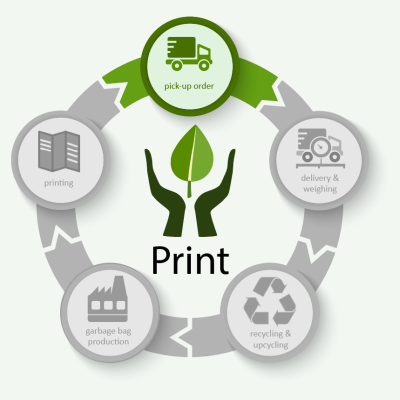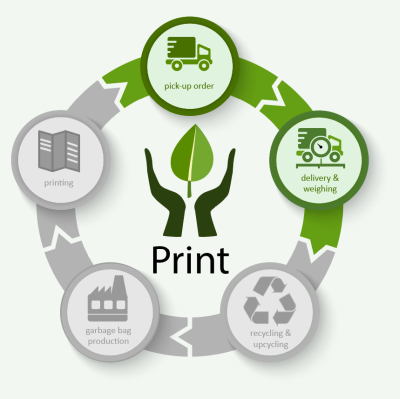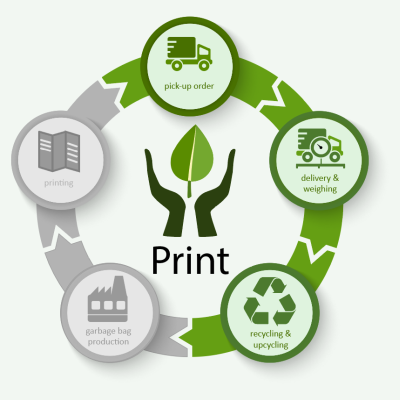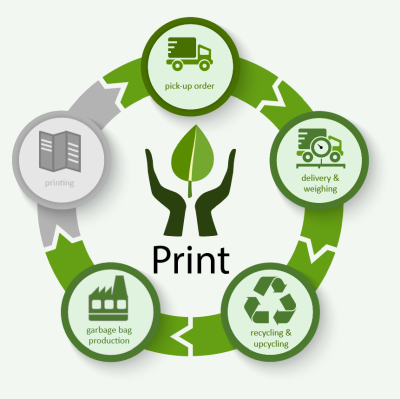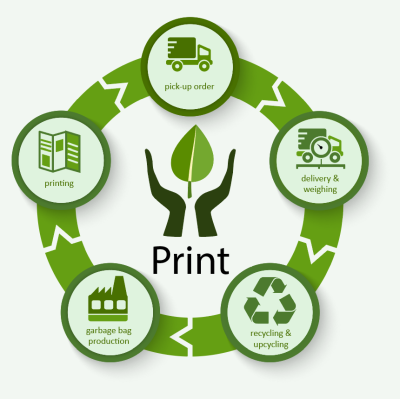Prnting inks are not formulated to resist higher temperatures in plastics recycling processes (220 - 250 °C). Especially ink binders and pigments are decomposing partly or even fully. Some of these decomposition products are causing even severe odours (VOCs = volatile organic carbons), others remain in the plastics mixture and have a strong tendency to migrate to the granules' surfaces.
Technical School in Linz there was developed a quality assurance device called "M2Watch" to measure inline (i.e. out of extruder degassing) and permanently total VOC emissions.
Removal of printing inks is possible with solvents on a chemical way only (kind of chemical recycling process). But this is generating new waste streams, causes high costs and affords even a small chemical plant at all. ...
This upcycling process was developed interdisciplinary and is based on intertisation of these decomposition products, having the aim to let them remain as a kind of inert filler inside. With a combination of special processing technique and chemical reactive additivation new regranulates of high quality and fully compatible with REACH can be formed. There are no new waste materials coming out of this process. As the regranulates can be used for 100 % in any new production the whole Branche can avoid usage of virgin polymers for reproduction of goods again.








